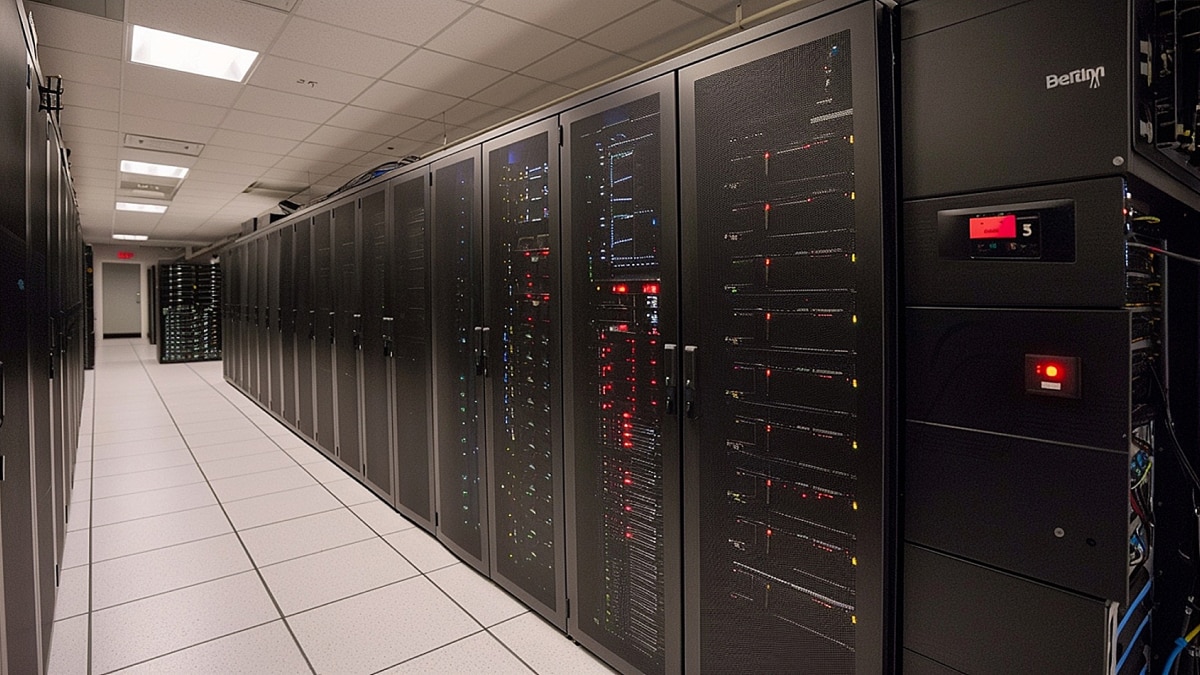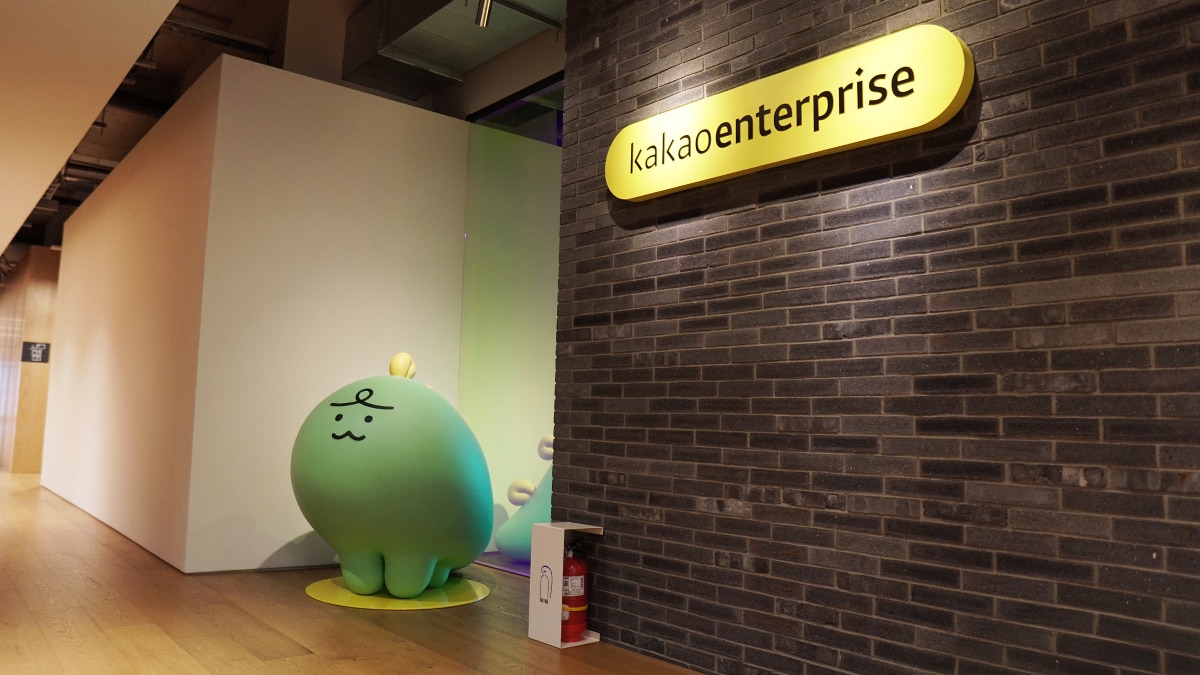Kakao Enterprise accelerates KakaoCloud with AMD EPYC™ CPUs
South Korean cloud service provider Kakao Enterprise reduced its data center footprint by 50 percent and increased performance by 30 percent with AMD EPYC™ CPUs.

Cloud-based Internet services are increasingly the hub of everyday activities, and South Korea is ahead of the curve. Leading the market for these services in South Korea is Kakao Enterprise. With an annual revenue of around $130 million per year, the company has a constant need for the best possible computing performance. As its business goes from strength to strength, Kakao Enterprise has deployed AMD EPYC™ to deliver the density for KakaoCloud, and the speed and cost savings required to keep ahead of the competition.
“Kakao Enterprise is heavily focused on cloud services KakaoCloud,” says Bruce Hwang, Team Leader, Kakao Enterprise. “Kakao Enterprise was created as a spin-off of the AI Lab, which was an in-house company from Kakao Group. We had a mission to provide customized services for companies based on technologies such as AI, cloud, and search. The key products include cloud infrastructure services (IaaS), platform as a service (PaaS), and software as a service (SaaS), supporting digital innovation.”

Workload flexibility front and center
For this range of offerings, Kakao Enterprise requires servers that can deliver high performance across a wide range of workloads. “We need versatile HPC and storage servers,” says Hwang. “The workload is dependent upon the end customer. As a Cloud Service Provider, we use most of our computing servers to provide Virtual Machines (VMs) for our users to run their own workloads, such as webservers, back-end services requiring computing power, and games.” However, the Kakao Games Corp. service places a particularly strong demand on its infrastructure. “Gaming requires plenty of computing power. We needed to provide the level desired by customers through optimized tuning based on high-performance CPUs.”
These requirements for flexibility and performance led Kakao Enterprise towards AMD EPYC processors. “We learned about AMD processor-powered VM services on competing CSPs and became even more interested when our SmartNIC development partner Xilinx merged with AMD,” says Hwang. “Our first deployment was 3rd Gen AMD EPYC CPUs. Before that, we had been struggling to increase our CPU utilization efficiency. We found that AMD CPUs with 48 cores or more fit our services’ density requirements better than processors from other vendors.”
System integration partner Dell also provided a very reasonable cost for servers powered by AMD EPYC CPUs. “This enhanced our customers' opportunities to select KakaoCloud services,” says Hwang. “The biggest challenge was securing the necessary computing performance so that the game server could run smoothly. Due to the nature of gaming services, ultra-low latency and high stability are required to provide an optimal user experience. AMD EPYC CPUs were perfect for achieving that.”

Reduced Total Cost of Ownership
“Our most important factor when reviewing the AMD EPYC processor was that it was a high-clock CPU based on the most recent architecture,” says Hwang. “It also needed to be price competitive compared to other vendor CPUs of the same class, which AMD EPYC CPUs fulfilled. We ran performance tests to check whether the level required by our customers was met. We ran as many different workloads as possible such as Geekbench, Cinebench, and Passmark. We also performed benchmarks and computing services from other companies that the customer was already using to run their gaming servers.”
Kakao Enterprise’ KakaoCloud has three major pillars for its high-density servers. “These are Gaming Servers, Data Store Services, and AI and Data Analytics Platforms,” says Hwang. “These all benefit from processors with over 48 cores. The server that our first customer was considering was based on Intel Sapphire Rapids. Benchmarks found that it met all performance requirements. However, as a cloud company, we tried to provide the same performance with the most cost efficiency. We completed the same benchmark tests on the EPYC processor and achieved a similar level of performance.”
Kakao Enterprise has experienced considerable cost and performance improvements from upgrading to AMD EPYC CPUs. “Our Total Cost of Ownership has been significantly reduced,” says Hwang. “We have been able to purchase fewer servers using a 48-core base CPU and even fewer as we extend to 96-core with 4th Gen AMD EPYC processors. We can significantly reduce the number of servers, and the space required in our data center.”

Future deployment will be AMD EPYC CPUs only
A key feature here is performance per watt. “Since upgrading to AMD EPYC CPUs, we are now using 40 percent as many servers but have increased the performance by 30 percent, with a 50 percent reduction in TCO,” says Hwang. “We are also making use of the memory encryption security feature of AMD EPYC processors, although the main benefits are the density and the power efficiency. We saved about 50 percent power consumption switching to AMD EPYC CPUs.”
Kakao Enterprise now has around 500 nodes for its gaming servers, based on Dell PowerEdge R6525 servers. For this service, the company has been deploying 3rd Gen AMD EPYC 7643 CPUs but is now transitioning to high-frequency 4th Gen AMD EPYC 9474F processors, both with 48 cores. Kakao is in the middle of upgrading from Intel to AMD, and currently has about 70 percent of its infrastructure switched over. But KakaoCloud VMs are already frequently running on AMD EPYC CPUs.
“We are moving to 96-core 4th Gen AMD EPYC 9004 Series CPUs for our high-density servers,” says Hwang. “We're also employing EPYC 8004 Series processors for storage servers, mainly due to their low TDP. We keep increasing the AMD footprint in our data centers. The strongest features are power efficiency and reduced space. We also halved our requirement for shared infrastructure. Data center room is increasingly at a premium in South Korea, so having a high-density CPU like AMD EPYC helps us make the most of what we have available. Power efficiency is also most important because the South Korean government is focusing on ESG and the environment.”
“In the future, KakaoCloud is planning to deploy almost all its virtual machines on AMD EPYC CPUs and only use ARM/Intel processors based on customer demand,” says Hwang. “Our service will eventually only use the AMD EPYC CPU. Kakao Enterprise is a relative latecomer to cloud service provision in South Korea, but AMD EPYC CPUs have enabled us to achieve a lot in a short period of time.”

About the Customer
Kakao Enterprise is an IT company that leads cloud innovation through close collaboration with global technology companies and provides a faster and safer cloud platform. It provides stable cloud services to companies and organizations that require high-performance and high-density IT environments such as ultra-large AI models and high-performance computing (HPC), and supports digital innovation based on cloud natives. Based on cooperation with various partners, it strives to build a healthy digital ecosystem and grow together, and is strengthening R&D investment for technological advancement. Kakao Enterprise is headquartered in Pangyo, Seongnam-si, Gyeonggi-do, South Korea, and provides KakaoCloud as a core service. For more information visit kakaocloud.com.
Case Study Profile
- Industry:
Cloud Service Provider - Challenges:
Improve performance and total cost of ownership, while reducing footprint and power consumption in cloud service infrastructure - Solution:
Deploy 3rd and 4th Gen AMD EPYC processors in data center for cloud infrastructure - Results:
40 percent as many servers, performance increased by 30 percent, 50 percent reduction in TCO, 50 percent reduction in power consumption - AMD Technology at a Glance:
3rd Gen AMD EPYC™ CPUs
4th Gen AMD EPYC™ CPUs
3rd Gen AMD EPYC™ 7643 CPUs
4th Gen AMD EPYC™ 9474F CPUs - Technology Partners:











